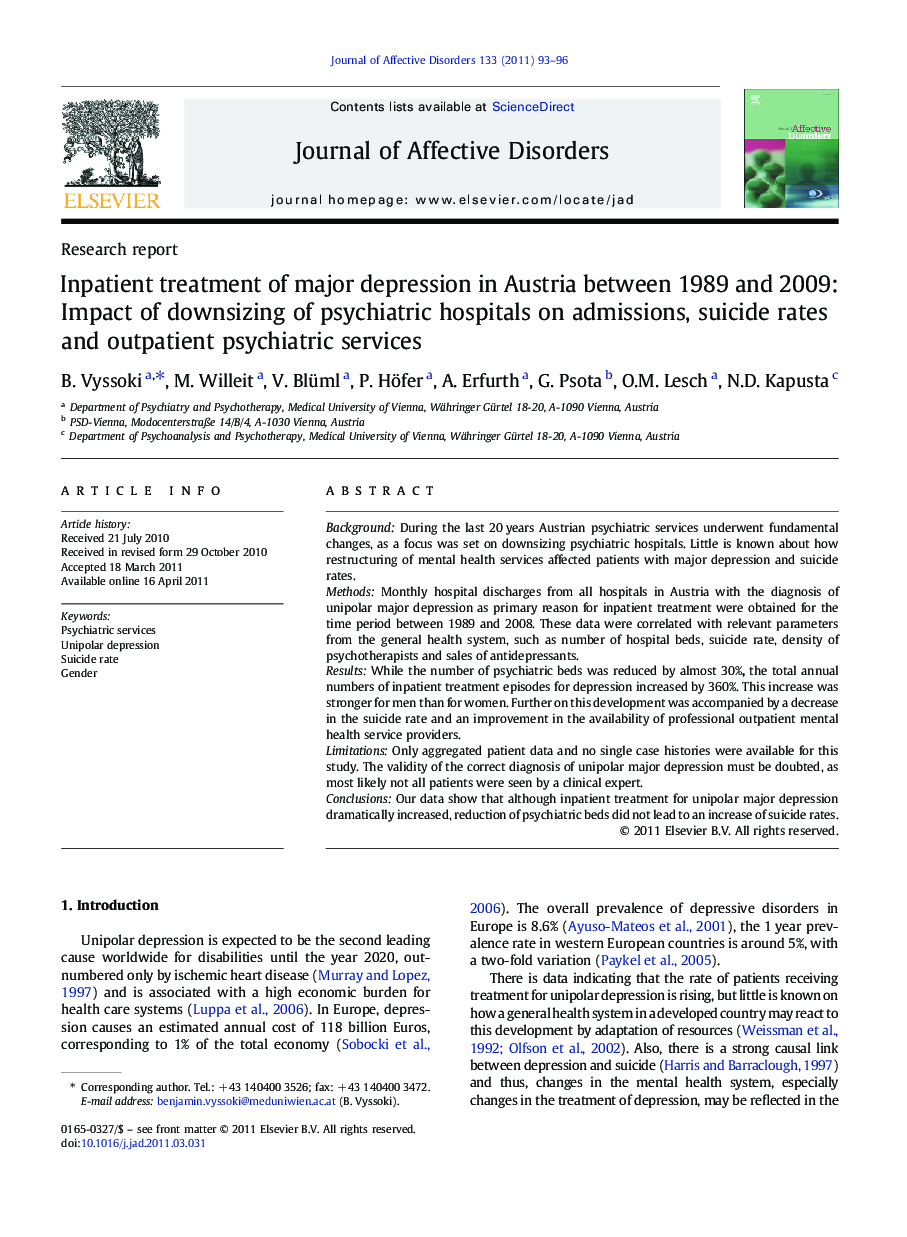| Article ID | Journal | Published Year | Pages | File Type |
|---|---|---|---|---|
| 6235251 | Journal of Affective Disorders | 2011 | 4 Pages |
BackgroundDuring the last 20Â years Austrian psychiatric services underwent fundamental changes, as a focus was set on downsizing psychiatric hospitals. Little is known about how restructuring of mental health services affected patients with major depression and suicide rates.MethodsMonthly hospital discharges from all hospitals in Austria with the diagnosis of unipolar major depression as primary reason for inpatient treatment were obtained for the time period between 1989 and 2008. These data were correlated with relevant parameters from the general health system, such as number of hospital beds, suicide rate, density of psychotherapists and sales of antidepressants.ResultsWhile the number of psychiatric beds was reduced by almost 30%, the total annual numbers of inpatient treatment episodes for depression increased by 360%. This increase was stronger for men than for women. Further on this development was accompanied by a decrease in the suicide rate and an improvement in the availability of professional outpatient mental health service providers.LimitationsOnly aggregated patient data and no single case histories were available for this study. The validity of the correct diagnosis of unipolar major depression must be doubted, as most likely not all patients were seen by a clinical expert.ConclusionsOur data show that although inpatient treatment for unipolar major depression dramatically increased, reduction of psychiatric beds did not lead to an increase of suicide rates.
